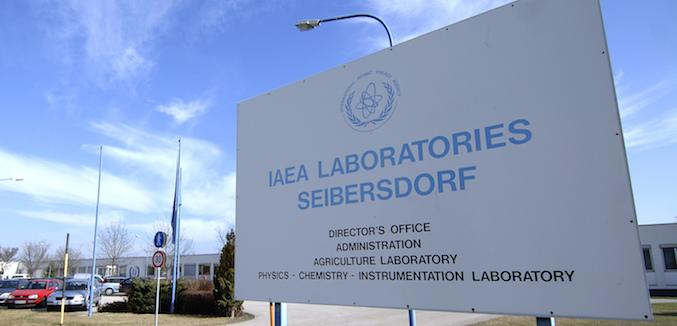Reuters reported Thursday that negotiations between the UN’s nuclear watchdog (IAEA) and Iran – aimed at securing inspector access to sites where the Iranians are suspected of having conducted military-related atomic work – “appear not to have substantively advanced,” with the agency tersely announcing that “Iran did not propose any new measures during the meetings in Tehran” and that no date had been set for renewing negotiations.
Diplomats had flown into Tehran for two days of talks aimed at making progress on Iranian transparency measures, just over a month after the IAEA issued a blistering report blasting the Islamic republic for failing to meet four out of five transparency obligations by an agreed August 25 deadline. The same report noted that the Iranians had instead spent the time destroying evidence in a way that “likely… further undermined the Agency’s ability to conduct effective verification.”
Reuters reported that Western officials in Vienna reacted to the news of the talks’ failure by emphasizing that continued Iranian stonewalling could jeopardize broader efforts to secure a nuclear deal between the P5+1 global powers and Tehran:
Western officials say Iran must improve cooperation with United Nations nuclear sleuths if it wants to reach a settlement to a protracted dispute with six world powers over the country’s nuclear program and be rid of crippling financial sanctions.
The International Atomic Energy Agency said in a statement after the Oct. 7-8 meeting in Tehran that discussions would continue. But it did not announce a date for the next round of talks focused on the Vienna-based IAEA’s concerns that Iran had initially been supposed to address by late August.
Diplomats in the Austrian capital said it seemed that very little, if any, progress had been achieved.
At stake are international concerns over the so-called possible military dimensions (PMDs) of the Iranian nuclear program, the central significance of which has sometimes been underplayed by voices within the foreign policy community. While the P5+1 is charged with negotiating over Iran’s uranium work, its plutonium work, and its ballistic missile work – all of which the Iranians are obligated by half a dozen United Nations Security Council (UNSC) resolutions to roll back – the IAEA seeks to establish the scope of Iran’s overall atomic program, including in those three more specific areas.
The mandate stretches beyond full-blown weaponization work, and into military involvement in uranium mining, centrifuge construction, and so on. Full Iranian disclosure is considered a minimum to establishing a robust verification regime: The IAEA can’t verify that Iran has met its obligations to limit uranium work, for instance, unless it knows the full scope of the uranium work that’s being done. PMD-related transparency is seen as not just another issue – say, one that Iran could refuse to trade away by making concessions in other areas – but as a prerequisite to verifying Iranian compliance across all issues.
[Photo: IAEA imagebank / Flickr]




